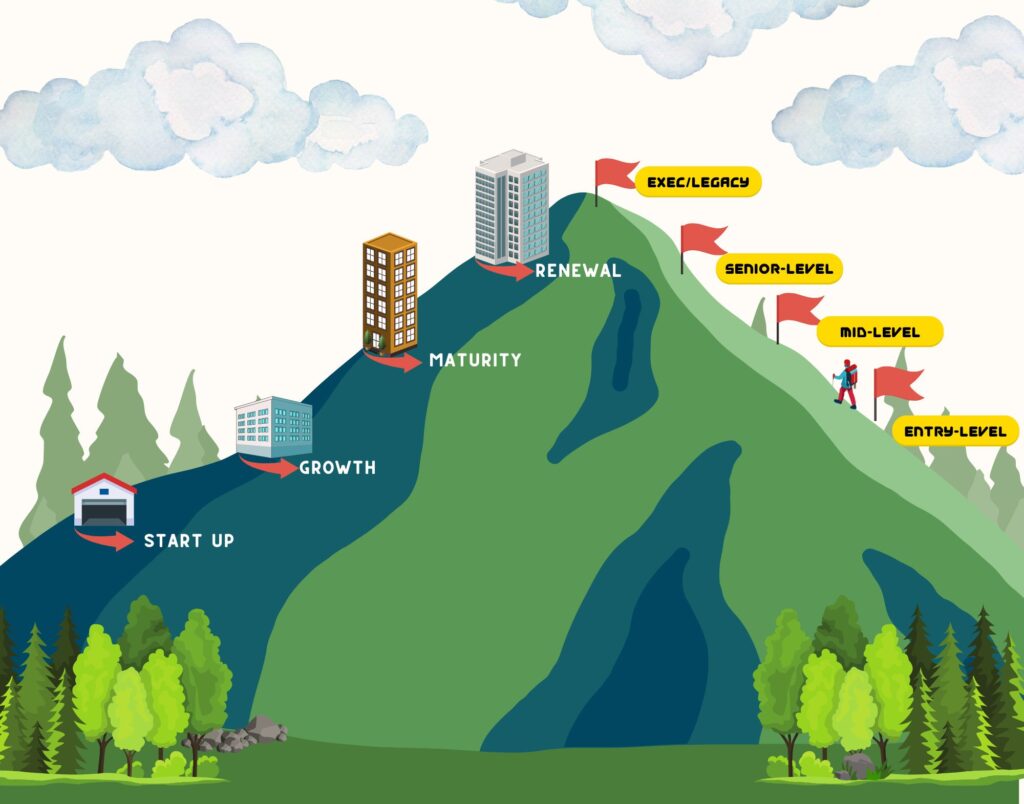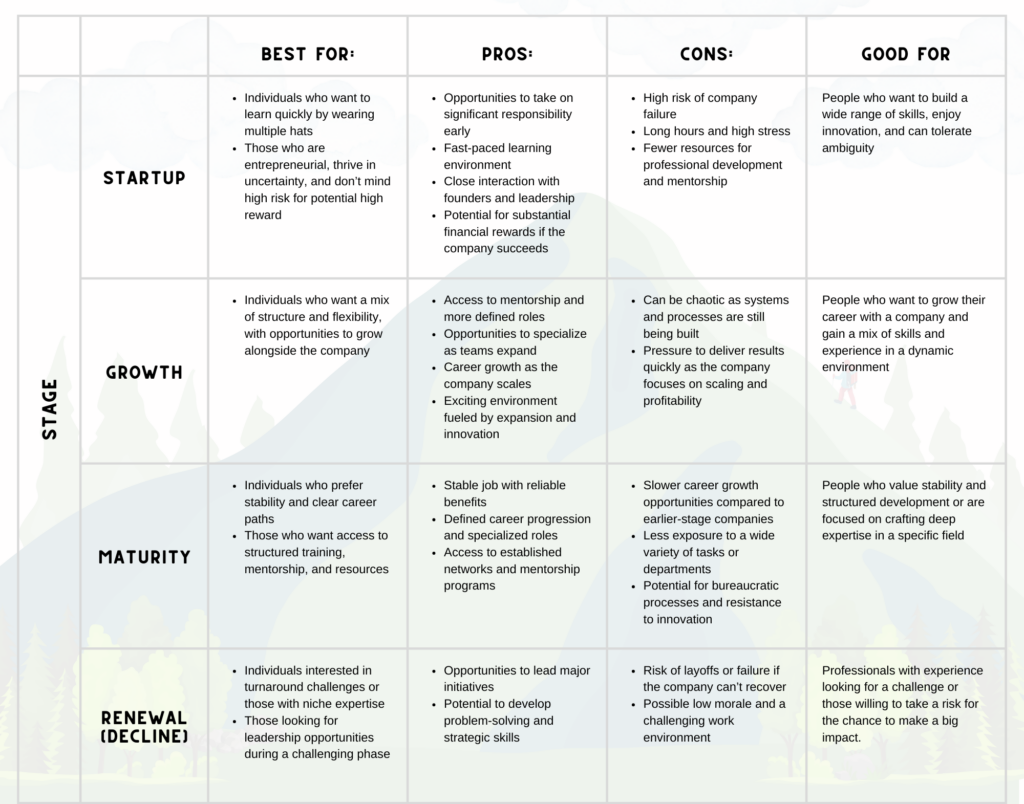I have good and bad news! The bad news is when companies look to cut costs, they often start with development programs. The good news is that we are in the information age, with access to a plethora of resources.
I am (somewhat of) a nurturer by nature. On my best days, I brag about my green thumb; on lesser days, I buy plants to replace the ones that didn’t make it. When I (mysteriously) acquire a new plant, I always make note of two things: its current state and the best growing conditions. I love investing time into things and watching them grow. Recently, I’ve been preparing for my next big career move, and now I feel ready to move forward. In the spirit of “togetherness,” I want to share a few things I’ve learned along the way.
Before diving headfirst into career development, let’s take a big step back and examine the big picture—the enormous journey of a career. To give context, we’ll compare an organization’s growth stages with the stages of a career journey.
The Typical Career Journey
Typically, career growth occurs in four stages: entry-level, mid-level, senior-level, and executive or legacy.
- Entry-Level: This stage is all about exploration. If you are just starting your career, you’re likely a sponge for knowledge, eager to learn as much as possible. You focus on building skills that are core to your field, often gaining them through hands-on experiences. At this stage, it’s essential to avoid pigeonholing yourself—explore various roles, learn from mentors, and adapt to your current work environment. Doing so will foster your success.
- Mid-Level: At this stage, you establish yourself as a professional in your field. You refine your expertise, take on more responsibilities, and start managing projects or teams. If you haven’t already, this is the time to begin networking and building your personal brand. Remember to create a personal brand that exists outside the context of your current organization.
- Senior-Level: Here, you step into leadership roles or become a subject matter expert (SME) within your organization. You leverage your knowledge to make strategic decisions and drive influence. Focus on mastering leadership skills—formal or informal—and mentoring others. At this stage, you should be able to connect your contributions to your organization’s overall success.
- Executive/Legacy: At this stage, you take on executive roles or advisory positions. Your focus shifts to shaping the vision and strategy of organizations, driving innovation, and leaving a lasting legacy through mentorship, thought leadership, or industry contributions. Keep in mind that advancement does not necessarily equate to people leadership—it can also mean becoming an influencer in your field.

Organizational Growth Stages
Just like a career, a company’s success takes time. Did you know that Amazon started as a humble online bookstore?
Here are the common stages of company growth:
- Startup: This initial phase focuses on developing a product or service, building a customer base, and securing funding. It is marked by high uncertainty, rapid iteration, and small, close-knit teams.
- Growth: The company scales its operations, expands market reach, and increases revenue. Priorities shift to optimizing processes, hiring talent, and competing in the market.
- Maturity: The company stabilizes, achieving consistent revenue and a strong market presence. Efforts focus on maintaining market share, diversifying offerings, and improving efficiency.
- Renewal/Decline: Companies face challenges adapting to market changes. Renewal involves innovation and reinvention, while failure to adapt may lead to decline. This stage often involves strategic pivots or restructuring.
Why Consider Company Growth Stages?
Organizations exhibit distinct behaviors at each growth stage.
- Startup: Focused on survival, these companies prioritize innovation over efficiency, often pivoting rapidly with limited resources.
- Growth: Companies formalize processes, invest in talent, and scale their operations.
- Maturity: Efficiency-driven, these companies often expand product lines and acquire smaller businesses while avoiding unnecessary risks.
- Decline/Renewal: Organizations in decline experience revenue drops due to market saturation or outdated offerings. Renewal involves revitalization through new products, markets, or business models.

When deciding where you fit best, consider your goals and the experience you seek. If you want to learn broadly and tackle challenges, a startup or growth-stage company might suit you. If you value stability and structured growth, a mature company is ideal. Understanding an organization’s growth stage when planning your next career move is crucial as it will directly impact available opportunities, required skillsets, and the overall work environment. By aligning your career goals with the organization’s stage of development, you increase your chances of finding a fulfilling environment where your skills and contributions are most valuable.